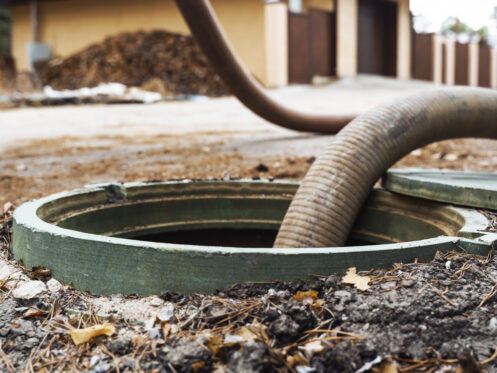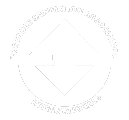Septic tanks provide on-site waste management for homes that do not rely on municipal sewer systems. These tanks consist of underground chambers that contain water and anaerobic bacteria to effectively process wastewater. During the winter, however, cold temperatures can wreak havoc on system tank. As the ground freezes, the harsh conditions can impact your septic tank and could leak to sewage backups and costly repairs. A look at the factors that cause septic tanks to freeze as well as effective preventative measures can help you winterize your system and keep it functioning properly all season long.
Do Septic Tanks Freeze During the Winter?
Septic tanks can freeze during the winter, and this dilemma is surprisingly common in North America. The risk is greatest when outdoor temperatures drop below the freezing point of water (0°C or 32°F) and remains that way for an extended period of time. Septic tanks are vulnerable at this temperature due to the ground’s frost line. Also known as the freezing depth, the frost line is the depth in which the groundwater in your soil is likely to freeze. According to the National Oceanic and Atmospheric Administration (NOAA), the frost line in North America can fall anywhere between 0-100 inches. For example, the average frost line in Kansas is between 30-36 inches below the soil line.
Any component of your septic system located near the frost line is susceptible to freezing in the winter. These components include the septic line that runs from your house to the tank, the pipes that run from the tank to the leach field, the leach field itself, and the septic tank itself. For example, water within the septic tank can freeze and cause a dangerous buildup of solid waste near your home. Frozen water can also cause the anaerobic bacteria in your septic tank to become dormant or inactive, diminishing your septic system’s ability to treat wastewater. Freezing conditions on the leach field can disrupt the septic drainage process and can even cause sewage backups in your home. In addition, frozen sewer lines can shatter or burst, resulting in the need for costly emergency repairs.
What Are Signs of a Frozen Septic Tank?
Identifying the signs of a frozen septic tank early can help you address issues before they result in serious breakdowns. Some of the top indications of a frozen tank include slow or non-draining fixtures within your home. Frozen septic tanks primarily affect fixtures that expel wastewater like toilets, bathtubs, dishwashers, or laundry machines. If these appliances or fixtures drain water slowly or not at all, you could have frozen system components on your property. Other signs include gurgling noises from your drains that signify trapped or ice blockages, foul odors that linger due to trapped sewage in your septic line or tank, or unusually frozen ground near your property’s septic area. In the most extreme instances, you may also notice sewage backing up into your home through any low-level toilets or drains.
What Are the Best Ways To Prevent a Frozen Septic Tank?
While harsh winter temperatures are often inevitable, there are steps you can take to protect your septic tank. These steps include scheduling a professional inspection, insulating your tank and pipes, and protecting your drains and leach field.
Schedule a Professional Inspection
The first step is to schedule a professional septic tank inspection. During an inspection, the plumber can check your tank and lid for any cracks or defects that make your system more vulnerable to freezing. The plumber can also let you know whether it is time to pump out the septic tank to clear any accumulated sludge so that it works smoothly during the winter. Depending on the condition of your system, the plumber may also install a septic heater to help maintain stable temperatures or input bacteria additives to ensure a productive environment within the tank.
Insulate Your Tank and Pipes
Insulation can help keep your septic system’s components from freezing. Ask a plumber to insulate the tank and any exposed piping before winter. The most common type of insulation material is thick rigid foam durable enough to withstand outdoor conditions.
Protect Your Drains and Leach Field
While winter means spending more time indoors, you should always practice safe habits using your drains and near your leach field. For example, avoid putting anything other than bathroom tissue or human waste in toilets to prevent blockages that can then freeze and cause backups. Never pour oil and grease down the drain since cold weather can quickly solidify these liquids and cause clogs. Avoid driving trucks or snowmobiles near your drain field since they can disrupt the soil and reduce the field’s wastewater absorption capacity.
Contact Us Today
Winter temperatures pose a serious threat to septic tanks. Fortunately, the experts are here to help. Salina Septic Service provides septic tank services for homes in Salina, KS and surrounding areas. We offer septic tank maintenance and installation, and we also perform septic tank pumping to keep your system flowing smoothly. Our plumbers provide septic tank cleaning and can also optimize your leach field. In addition to routine services, we offer 24/7 emergency plumbing for problems that cannot wait. No matter the issue, we can help. Contact Salina Septic Service today for all of your plumbing needs.





